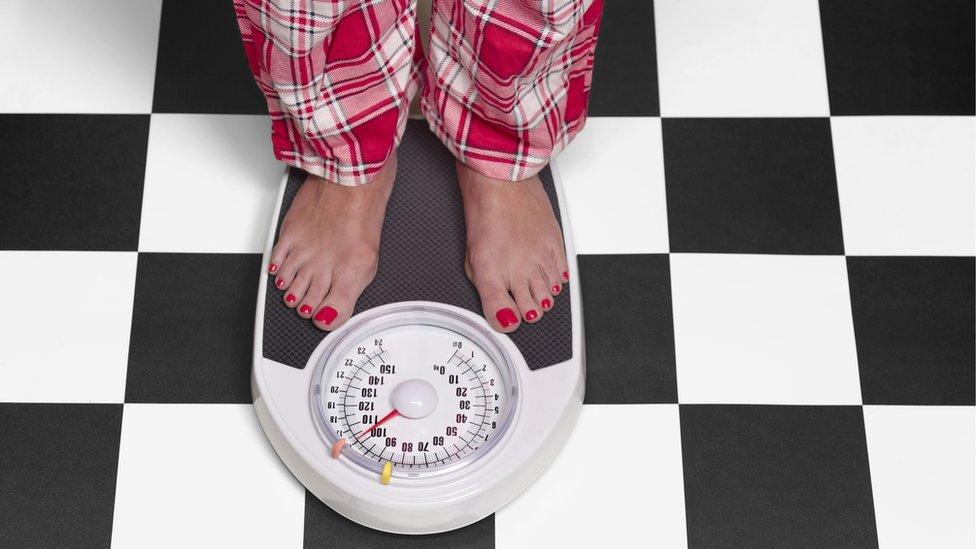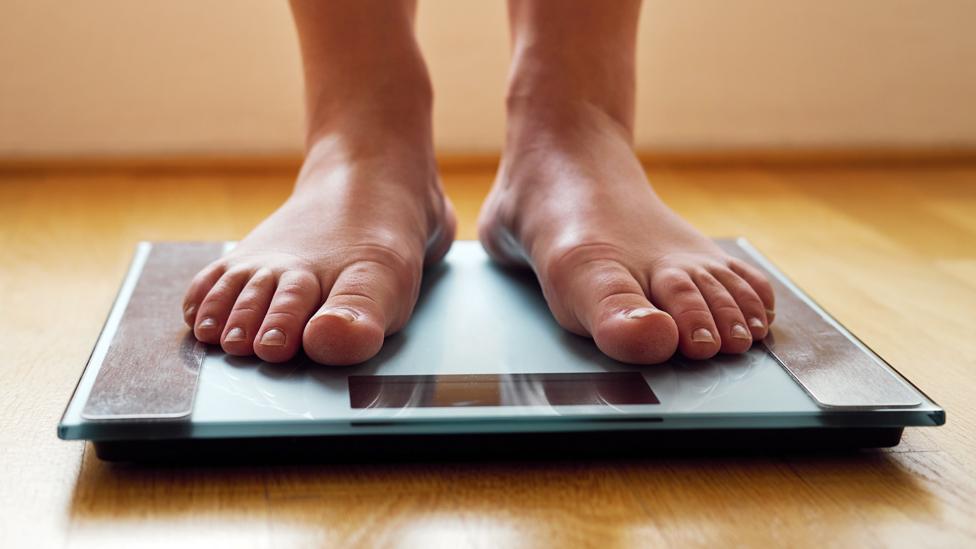Weight loss: Brain training app launch could help with obesity
- Published
- comments

The app would require participants to log their weight, food and take part in daily tasks to see if they aid weight loss
Could brain training games help with weight loss? It is a theory researchers in Wales want to test.
Scientist at Cardiff University hope to recruit volunteers for what would be the largest study of its kind ever held.
They are looking for Android smart phone and tablet users to trial their "Restrain" app.
Project leader Chris Chambers said it was "especially important now" due to the ongoing Covid pandemic.
The university's Brain Research Imaging Centre hope to sign up thousands of volunteers, who are overweight or living with obesity.
The new app is designed to be used over small periods of time for three months - with each daily session between 10-15 minutes long.
Participants select foods they want to eat more or and less of, to include in their training - with weekly weight monitoring, food reports, and recording their attitudes and cravings.
Previous research with a group of volunteers, who were not overweight, did suggest the approach could help tackle diet issues.
Prof Chambers said: "Now, we want to find out if it can work in the real world and help those who are overweight or living with obesity. This is especially important now as so many people have struggled to maintain a healthy weight during the pandemic."

The effects have been successful on other research groups but they were of a "health weight", says the project lead
He added the team wanted to see if "cognitive training really can change people's attitudes to food and encourage weight loss".
Fellow researcher Ines Duarte said: "One of the possible advantages of such training is that it doesn't require much time or effort - it attempts to reprogram a person's relationship with food, rather than relying on willpower or requiring them to make dramatic changes to their lifestyle."

INSPIRATIONAL WALES: Get the feel good factor with a collection of inspirational stories from across Wales
THE NHS: TO PROVIDE ALL PEOPLE: Journey through the personal experiences at the heart of the NHS

- Published28 June 2021

- Published15 January 2021

- Published25 July 2020
